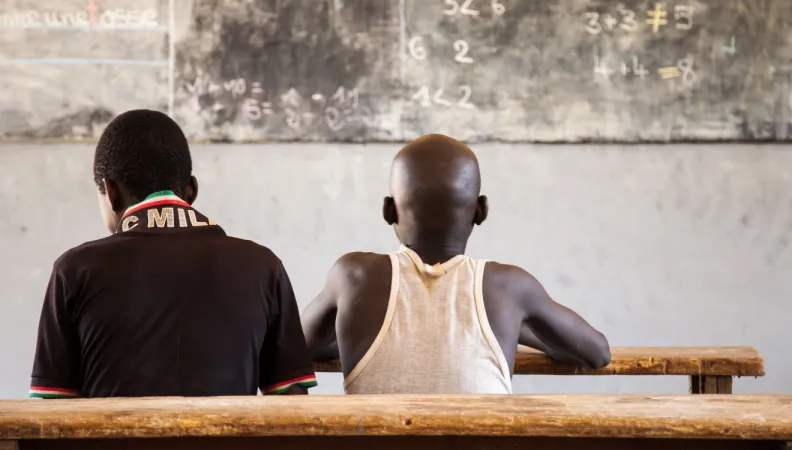Share the page
€100 Million to Improve Education in Guinea and Niger
Published on

The Global Partnership for Education, which aims to improve the quality of learning and reduce inequalities in access to education, has delegated to AFD its mission to increase the effectiveness of the education system in Niger and Guinea. The goal: to get more kids in class and provide more people with life opportunities – whatever their socio-economic background.
The 2020s will be marked by major changes in the education systems in Niger and Guinea. To support the national sectoral programs, the Global Partnership for Education (GPE), a leading multilateral stakeholder in the education sector, has approved two grants to Niger and Guinea, for €77.3 million and €34.03 million respectively. The grants will support the implementation of education policies in the two countries, with the aim of improving the quality of learning.
Targeting the most vulnerable
In Niger, the Education and Training Sector Program Transition Plan (PTSEF) for 2020-2022 aims to diversify educational pathways, target the first years of primary school, increase class time, improve the production and use of statistical data, and manage teaching resources more effectively. One of its main objectives is to reduce inequality.
“In Niger, the main inequality is between urban and rural populations: 91% of children in urban areas have access to primary school, against only 54% in rural areas. But there is also a 10-point gap in primary education between the enrolment of girls and boys. With a very constrained budgetary, security, demographic and now health situation, the objective is to target a few key priorities,” says Audrey Martinenq Duplessis, Education and Training project team leader at AFD.
“In Guinea, only 67% of pupils complete the last year of primary school, while 1.6 million children are not enrolled,” says Laurianne Le Lem, Education and Training project team leader at AFD. To address the challenges of providing universal access to basic education, the Ten-Year Education Program in Guinea (ProDEG) plans to stimulate demand for education among vulnerable groups and girls and increase educational provision to reduce disparities between regions.
Channeling financing towards beneficiaries
In both countries, the sectoral programs are driven by the objective of improving the quality of the education system and developing the human and financial capacities of decentralized services and schools to enable them to carry out their missions. Extensive support is planned at the local level (with the corresponding transfer of resources) for the management of schools, in-service teacher training, discussions with local authorities on the “school map” and discussions on “quality management” in the education community.
Alignment and harmonization of ODA and partnerships
In both Niger and Guinea, the financing will be channeled through a multi-donor common fund for education. “With these common funds, our objective is to align with national systems as much as we can by using national procedures wherever possible. This promotes ownership by the various stakeholders and strengthens the State expenditure chain in order to improve the implementation of financing and activities,” says Laurianne Le Lem.
“In Niger, there is a very strong partnership dynamic with the common fund. In addition to AFD, Swiss cooperation, UNICEF and Norway also contribute. LuxDev has in particular played a leading role in the creation of this fund. The partners have stepped up their commitment and we are working collectively with the Nigerien authorities to succeed together. It really makes a difference,” says Audrey Martinenq Duplessis.
In Guinea, the common fund has been set up with the GPE, UNICEF, AFD and new donors can join through enhanced coordination between partners.
